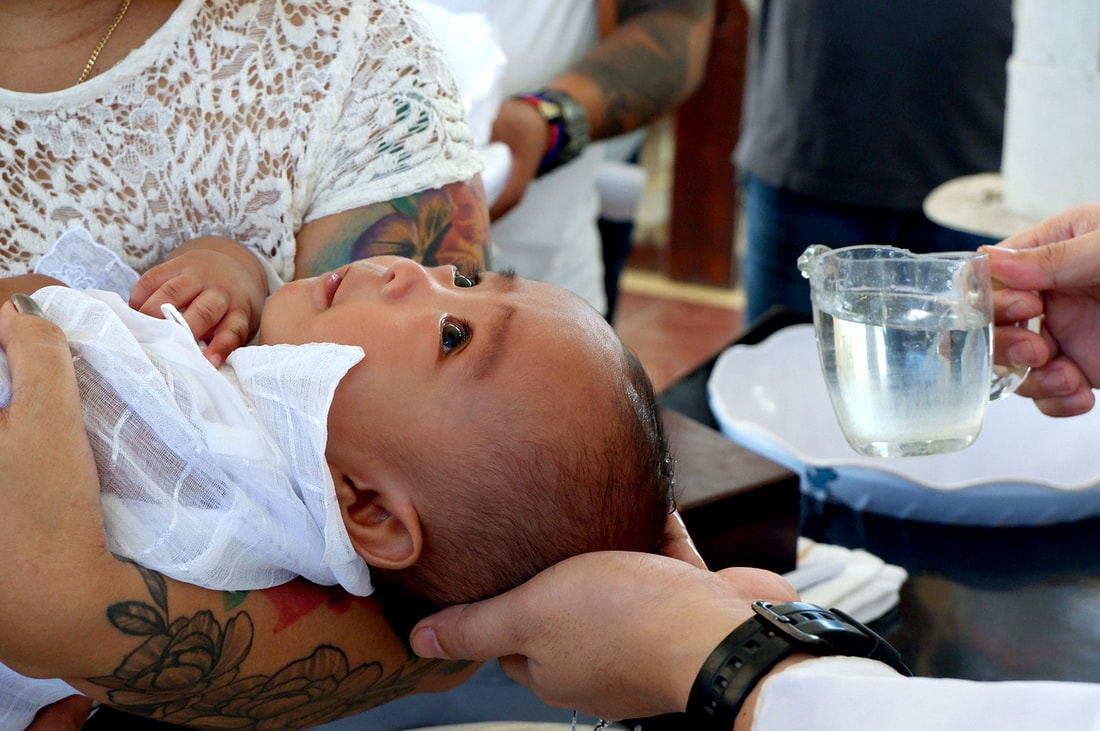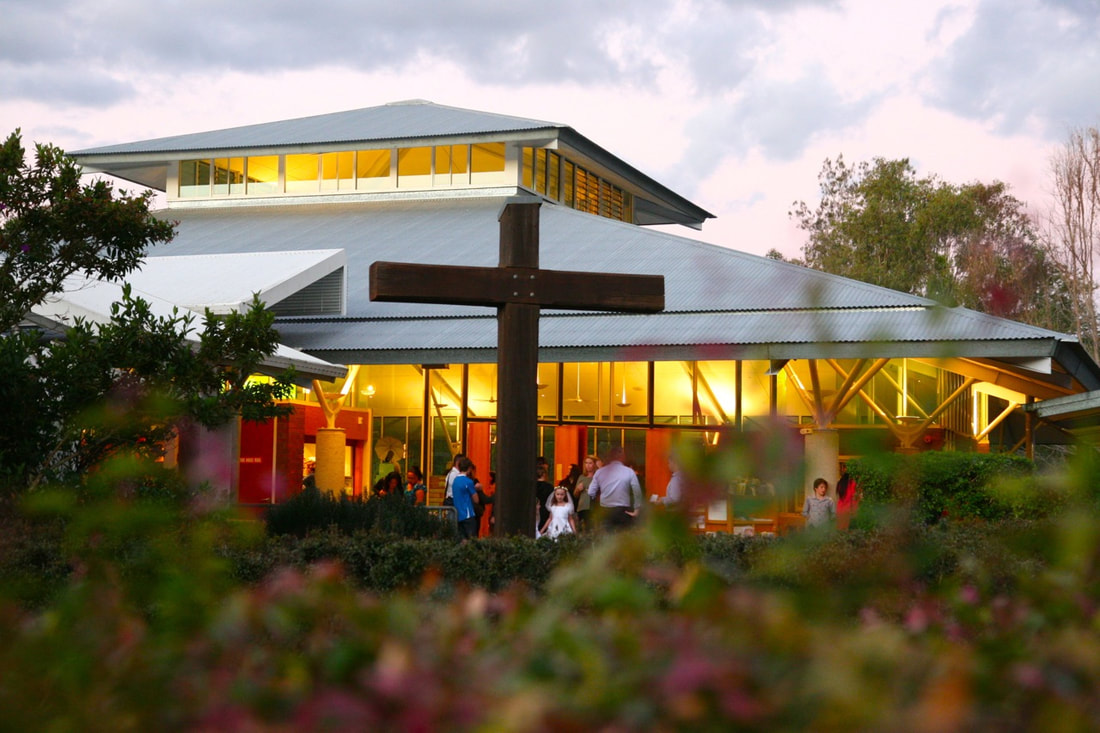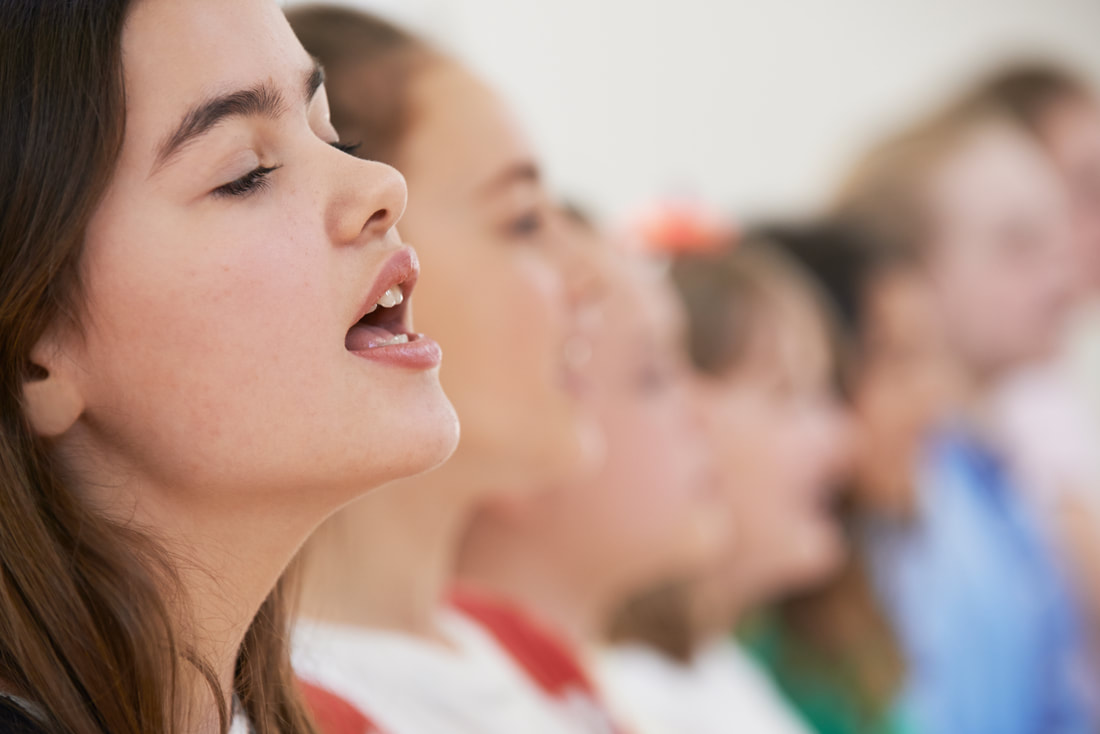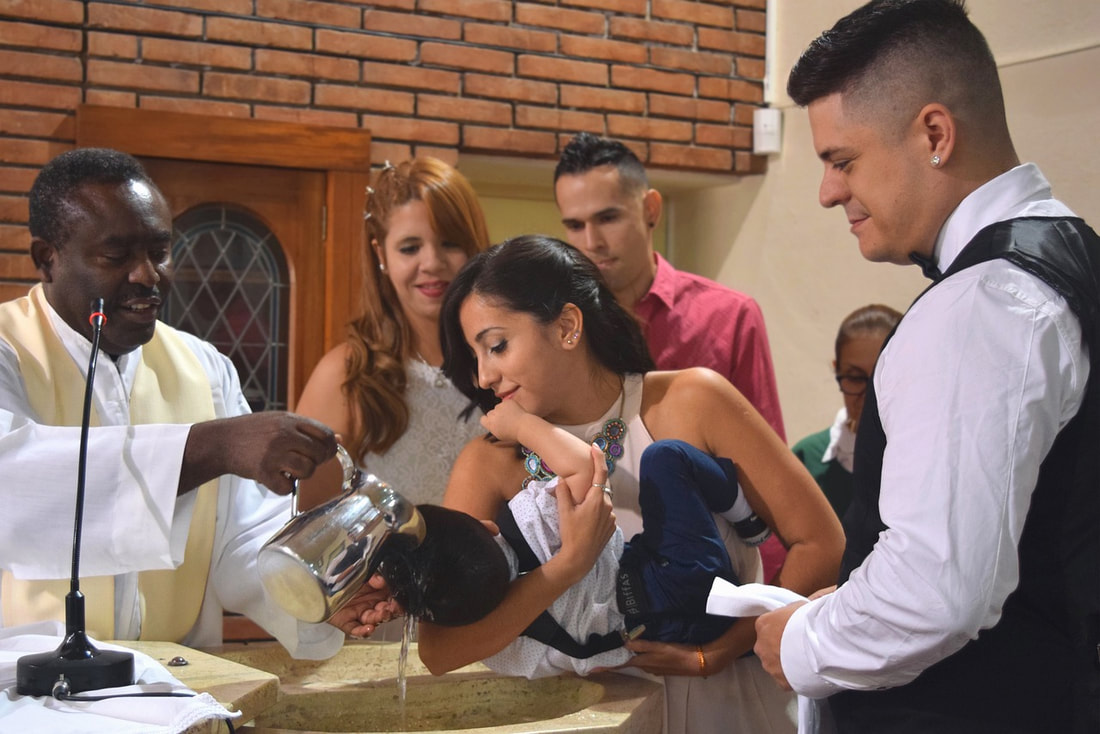Preparing for Baptism
by Anne Frawley Mangan
Infant Baptism
I must admit to a history of reticence around infant baptism. Why bother when the baby has no idea what’s happening, and can’t make promises, let alone keep them? Perhaps it was my Baptist mother’s influence, but it seemed to me that we should receive all the sacraments of initiation when we knew what we were promising and together at the same time.
It makes sense that by its very nature infant baptism requires a post-baptismal catechumenate… for the necessary flowering of baptismal grace (CCC 1231). Yes, the seed has surely been planted, but how and when does the flowering happen? Our experience is that families do not attend Mass regularly, and that is a problem when we consider that baptism is the sacrament of faith. But faith needs the community of believers. It is only within the faith of the Church that each of the faithful can believe (CCC 1253). Do parents ‘clearly understand’ that they are promising to participate in the mission of the Church? What is our responsibility to the families who come to us for the sacraments of initiation?
Let’s look to the scriptures for an answer… Go therefore and make disciples of all nations, baptising (initiating) them in the name of the Father and of the Son and of the Holy Spirit, teaching them to observe all that I have commanded you (Mt 28:19-20). So, Jesus’ great commission to his Church was: go, make disciples, baptise, teach. This gets a bit mixed up when we baptise infants because we try to make disciples of them and teach them afterwards. As for the ‘go’, we mostly stay and hope they come to us. And they do. For some reason young parents bring their children to church to be baptised. Why? Why not choose a naming ceremony instead? Perhaps there is a God-shaped hole inside them still longing to be filled. When families come seeking the sacraments for their children, we join them on a marvellous, hope-filled adventure right into the heart of God. However, it is not always an easy ride.
I must admit to a history of reticence around infant baptism. Why bother when the baby has no idea what’s happening, and can’t make promises, let alone keep them? Perhaps it was my Baptist mother’s influence, but it seemed to me that we should receive all the sacraments of initiation when we knew what we were promising and together at the same time.
It makes sense that by its very nature infant baptism requires a post-baptismal catechumenate… for the necessary flowering of baptismal grace (CCC 1231). Yes, the seed has surely been planted, but how and when does the flowering happen? Our experience is that families do not attend Mass regularly, and that is a problem when we consider that baptism is the sacrament of faith. But faith needs the community of believers. It is only within the faith of the Church that each of the faithful can believe (CCC 1253). Do parents ‘clearly understand’ that they are promising to participate in the mission of the Church? What is our responsibility to the families who come to us for the sacraments of initiation?
Let’s look to the scriptures for an answer… Go therefore and make disciples of all nations, baptising (initiating) them in the name of the Father and of the Son and of the Holy Spirit, teaching them to observe all that I have commanded you (Mt 28:19-20). So, Jesus’ great commission to his Church was: go, make disciples, baptise, teach. This gets a bit mixed up when we baptise infants because we try to make disciples of them and teach them afterwards. As for the ‘go’, we mostly stay and hope they come to us. And they do. For some reason young parents bring their children to church to be baptised. Why? Why not choose a naming ceremony instead? Perhaps there is a God-shaped hole inside them still longing to be filled. When families come seeking the sacraments for their children, we join them on a marvellous, hope-filled adventure right into the heart of God. However, it is not always an easy ride.
Making Missionary Disciples
Our parish prayed with this scripture text (Mt 28:19-20) when we started to explore missionary discipleship. We were excited by, and challenged to take up, the call to form disciples. This drew us to review our sacramental preparation programs. Alas, it seemed that we were failing. It did not look as if we were making disciples who were committed to loving God and others in the community of believers. A judgement? Perhaps. Our engagement rates were close to zero after the baptism certificate had been received. Was there conversion? Only God knows, but I can say that there was next to no change in behaviour.
Word, Worship, Welcome, Witness: our parish calls these the Four Pillars of Discipleship (gifted to us in RCIA 75). Disciples participate in them and are supported by them. They are all encountered in the parish Mass. We had apparently not prepared our families to embrace eucharistic liturgy as the source and summit of the life of a missionary disciple, or to understand clearly the meaning of their promise to bring their children up in the practice of the faith. Had we not adequately opened the baptismal symbols of ‘putting on Christ’, ‘receiving the light of Christ’ or being ‘anointed priest, prophet and king’? We were weary from the struggle and heartbroken that the precious gift of the sacraments was so little understood or dismissed. We regularly had comments such as: Are you telling me, if we don’t go to Mass twice, Mary can’t make her First Communion? Why do the Godparents need to be Catholic? I don’t even know if they are baptised. Because we want him to go to a Catholic High School, that’s why! You should be begging people to join the Church, not turning them away.
Let me be very clear: no one is ever turned away or told No. Everyone is welcomed with the same invitation… and a clear set of expectations. Yes, we say, we’d love to accompany you on this journey. Here’s how we do it… We are not in the realm of handing out certificates; we are raising disciples. So our question became, how do we remain faithful to God, the Church, and the sacraments, and also meet the expectations of families? An age-old problem, still perplexing us. With Jesus’ great commission, the RCIA and a lot of prayer, this is the path we travelled.
Making Missionary Disciples
Our parish prayed with this scripture text (Mt 28:19-20) when we started to explore missionary discipleship. We were excited by, and challenged to take up, the call to form disciples. This drew us to review our sacramental preparation programs. Alas, it seemed that we were failing. It did not look as if we were making disciples who were committed to loving God and others in the community of believers. A judgement? Perhaps. Our engagement rates were close to zero after the baptism certificate had been received. Was there conversion? Only God knows, but I can say that there was next to no change in behaviour.
Word, Worship, Welcome, Witness: our parish calls these the Four Pillars of Discipleship (gifted to us in RCIA 75). Disciples participate in them and are supported by them. They are all encountered in the parish Mass. We had apparently not prepared our families to embrace eucharistic liturgy as the source and summit of the life of a missionary disciple, or to understand clearly the meaning of their promise to bring their children up in the practice of the faith. Had we not adequately opened the baptismal symbols of ‘putting on Christ’, ‘receiving the light of Christ’ or being ‘anointed priest, prophet and king’? We were weary from the struggle and heartbroken that the precious gift of the sacraments was so little understood or dismissed. We regularly had comments such as: Are you telling me, if we don’t go to Mass twice, Mary can’t make her First Communion? Why do the Godparents need to be Catholic? I don’t even know if they are baptised. Because we want him to go to a Catholic High School, that’s why! You should be begging people to join the Church, not turning them away.
Let me be very clear: no one is ever turned away or told No. Everyone is welcomed with the same invitation… and a clear set of expectations. Yes, we say, we’d love to accompany you on this journey. Here’s how we do it… We are not in the realm of handing out certificates; we are raising disciples. So our question became, how do we remain faithful to God, the Church, and the sacraments, and also meet the expectations of families? An age-old problem, still perplexing us. With Jesus’ great commission, the RCIA and a lot of prayer, this is the path we travelled.
An Integrated Approach to Sacraments
We began with confirmation and communion. We moved from a ‘program’ to a ‘process’ with no fixed beginning or ending dates. We emphasised a minimum age and readiness, rather than year level at school. We worked with the Four Pillars (Word, Worship, Welcome, Witness). First, families are expected to attend Mass regularly in the parish so that we come to know one another and a sense of belonging develops. After that, the children ask for the sacrament and talk about why and what it means to them. When I tell parents the request comes from the child because they have reached ‘the age of reason’, they sometimes laugh, until I explain that it means they know right from wrong. A rite of welcome, a rite of election, and formal catechesis are part of the process. There is no ticking off names or passports to stamp. ‘Regular’ means we know each other; we are connected. The process takes about twelve months for each sacrament, which means that the whole liturgical year is experienced.
In the first instance, the new process was not well received by parents. Indeed, it was very hard for them, and for us. The conversations were extremely difficult and painful. Being part of the Mass was the stumbling block. This sort of comment was common: "You have no idea how busy families are. You can’t possibly expect us to fit Mass in as well as all their sport on the weekend. It’s people like you who give the Catholic Church a bad name". We explain that the parish Mass is at the centre of the process, and we cannot prepare children for communion if they are not experiencing Eucharist and growing as disciples. We ask, What can we do to help?
Many families went to other parishes for the sacraments, rather than take part at Mass regularly with us. They preferred a program-style preparation. The number of children in our process has dropped; however, the number of families engaged in ‘the practice of the faith’ has increased dramatically. As part of discerning readiness for first communion, we ask the children how they felt about coming to Mass more often. Positive responses include: I feel welcome, like I belong. I like the music and seeing other kids. It’s become a routine now. It’s good to be involved in choir and other ministries. I enjoy listening to the stories and getting closer to God. Even when prompted for negative responses, the only one they could think of was that they didn’t like getting out of bed for 9 am Mass and couldn’t we make it later. We believe the Holy Spirit is truly at work!
We began with confirmation and communion. We moved from a ‘program’ to a ‘process’ with no fixed beginning or ending dates. We emphasised a minimum age and readiness, rather than year level at school. We worked with the Four Pillars (Word, Worship, Welcome, Witness). First, families are expected to attend Mass regularly in the parish so that we come to know one another and a sense of belonging develops. After that, the children ask for the sacrament and talk about why and what it means to them. When I tell parents the request comes from the child because they have reached ‘the age of reason’, they sometimes laugh, until I explain that it means they know right from wrong. A rite of welcome, a rite of election, and formal catechesis are part of the process. There is no ticking off names or passports to stamp. ‘Regular’ means we know each other; we are connected. The process takes about twelve months for each sacrament, which means that the whole liturgical year is experienced.
In the first instance, the new process was not well received by parents. Indeed, it was very hard for them, and for us. The conversations were extremely difficult and painful. Being part of the Mass was the stumbling block. This sort of comment was common: "You have no idea how busy families are. You can’t possibly expect us to fit Mass in as well as all their sport on the weekend. It’s people like you who give the Catholic Church a bad name". We explain that the parish Mass is at the centre of the process, and we cannot prepare children for communion if they are not experiencing Eucharist and growing as disciples. We ask, What can we do to help?
Many families went to other parishes for the sacraments, rather than take part at Mass regularly with us. They preferred a program-style preparation. The number of children in our process has dropped; however, the number of families engaged in ‘the practice of the faith’ has increased dramatically. As part of discerning readiness for first communion, we ask the children how they felt about coming to Mass more often. Positive responses include: I feel welcome, like I belong. I like the music and seeing other kids. It’s become a routine now. It’s good to be involved in choir and other ministries. I enjoy listening to the stories and getting closer to God. Even when prompted for negative responses, the only one they could think of was that they didn’t like getting out of bed for 9 am Mass and couldn’t we make it later. We believe the Holy Spirit is truly at work!
Baptism in the Parish
As a result of these experiences, my own opinion on infant baptism has changed. Because they were baptised as babies and the spark is still there, we have a second chance. The families come to take the next step, for us to nurture, lead and love their children more deeply into the mystery. So, let the children come!
Because the meaning and grace of the sacrament of baptism are clearly seen in the rites of its celebration (CCC 1234), the liturgy forms the basis of preparation, with an emphasis on symbol. Catholics employ ritual and symbol to connect with God; this is our sacramental spirituality. Therefore, when we meet with the parents, we break open the symbols and actions of baptism in the hope that:
♦ the water truly cleanses, renews and gives life;
♦ through the Sign of the Cross and the White Garment, the child is covered in and named for Christ;
♦ that the oil strengthens, seals and anoints the little one to follow Christ as priest prophet and king;
♦ the light of Christ shines fervently within and through the child.
In the Profession of Faith, parents, godparents and community renew their own baptismal promises. It offers them the opportunity to remember who they are at their core, and the precious gift they promise to share with the child. Parents are urged to choose godparents who are their ‘best faith friends’, rather than just ‘best friends’. They need to exclaim I do with truth and passion, so they are given a copy of the questions to prepare.
As a result of these experiences, my own opinion on infant baptism has changed. Because they were baptised as babies and the spark is still there, we have a second chance. The families come to take the next step, for us to nurture, lead and love their children more deeply into the mystery. So, let the children come!
Because the meaning and grace of the sacrament of baptism are clearly seen in the rites of its celebration (CCC 1234), the liturgy forms the basis of preparation, with an emphasis on symbol. Catholics employ ritual and symbol to connect with God; this is our sacramental spirituality. Therefore, when we meet with the parents, we break open the symbols and actions of baptism in the hope that:
♦ the water truly cleanses, renews and gives life;
♦ through the Sign of the Cross and the White Garment, the child is covered in and named for Christ;
♦ that the oil strengthens, seals and anoints the little one to follow Christ as priest prophet and king;
♦ the light of Christ shines fervently within and through the child.
In the Profession of Faith, parents, godparents and community renew their own baptismal promises. It offers them the opportunity to remember who they are at their core, and the precious gift they promise to share with the child. Parents are urged to choose godparents who are their ‘best faith friends’, rather than just ‘best friends’. They need to exclaim I do with truth and passion, so they are given a copy of the questions to prepare.
The old adage, faith is caught, not taught has never been truer. Unless the child is immersed in faith in the home and the worshipping community, ‘catching’ it becomes all but impossible. We celebrate baptism during Mass so that visible communion with God and the community are central to the celebration. The joy of the community surpasses the extra five minutes Mass may take. Children at the Parish Mass Which brings us back to Mass. It is no secret (even if we don’t often say it out loud) that Mass can be boring for children (DMC 2, 24, 27). And hard work for parents! So family friendly liturgy, celebrations which appeal and animate, are a vital part of sacramental preparation. We cannot expect families to come to Mass because ‘they have to’. Meaningful relationships are rarely the result of coercion when it is communion with God and one another that we seek. We really do have to be intentional with songs, sermons and smiles in our parishes, in order to help people to encounter Christ.
Pope Francis invites all Christians everywhere to a renewed personal encounter with Jesus Christ. No one should think that this invitation is not meant for him or her (Joy of the Gospel 3). Through that encounter, we become the fullest truth of our being and the primary place of encounter is within the Body of Christ, especially when it prays and sings at Mass (SC 7). Strive to be a parish which welcomes families with children who wriggle, dance, sing and eat (as children do) even at Mass. Tut tuts (or worse) from pastor or people will close the door on them. Welcome them when they come for the sacraments, even if you have never seen them before. Be clear in your expectations and reasonable – participating in Mass is more than reasonable. Learn their names and talk to them. Include families in ministries. Provide liturgies especially planned with families in mind. Tell them you are happy they are there and miss them when they are not. Welcome the children before Mass, address them in the homily, ensure the music is appealing. Follow up with emails, anniversary cards and invitations to special celebrations. Always have hospitality after Mass. This continuation of communion is where relationship flourishes – and kids love cake!
Pope Francis invites all Christians everywhere to a renewed personal encounter with Jesus Christ. No one should think that this invitation is not meant for him or her (Joy of the Gospel 3). Through that encounter, we become the fullest truth of our being and the primary place of encounter is within the Body of Christ, especially when it prays and sings at Mass (SC 7). Strive to be a parish which welcomes families with children who wriggle, dance, sing and eat (as children do) even at Mass. Tut tuts (or worse) from pastor or people will close the door on them. Welcome them when they come for the sacraments, even if you have never seen them before. Be clear in your expectations and reasonable – participating in Mass is more than reasonable. Learn their names and talk to them. Include families in ministries. Provide liturgies especially planned with families in mind. Tell them you are happy they are there and miss them when they are not. Welcome the children before Mass, address them in the homily, ensure the music is appealing. Follow up with emails, anniversary cards and invitations to special celebrations. Always have hospitality after Mass. This continuation of communion is where relationship flourishes – and kids love cake!
The sacraments – baptism, confirmation and communion – aren’t magic. Nor are they dependent on the righteousness of either celebrant or recipient, but only on the power of God (CCC 1128). It is Christ who is at work (CCC 1127). Nevertheless, the extent to which the sacraments are fruitful is dependent on the openness of heart of those who receive them (CCC 1128). The response to the God-who-loved-us-first is a determination to live life as a disciple of Christ, loving God and loving others. It really cannot be done outside the community of the Church. God made us social beings who need others to reach our full potential and our ultimate fullness is communion with the Trinity. It all begins with baptism.
Anne Frawley-Mangan, parishioner at Albany Creek for thirty years, liturgist and educator,
has a special interest in enhancing religious experience through drama.
Originally published in Liturgy News, Vol 52/4, Summer 2022.
Images from Unsplash and Pixabay. Used under license/with permission.
has a special interest in enhancing religious experience through drama.
Originally published in Liturgy News, Vol 52/4, Summer 2022.
Images from Unsplash and Pixabay. Used under license/with permission.





